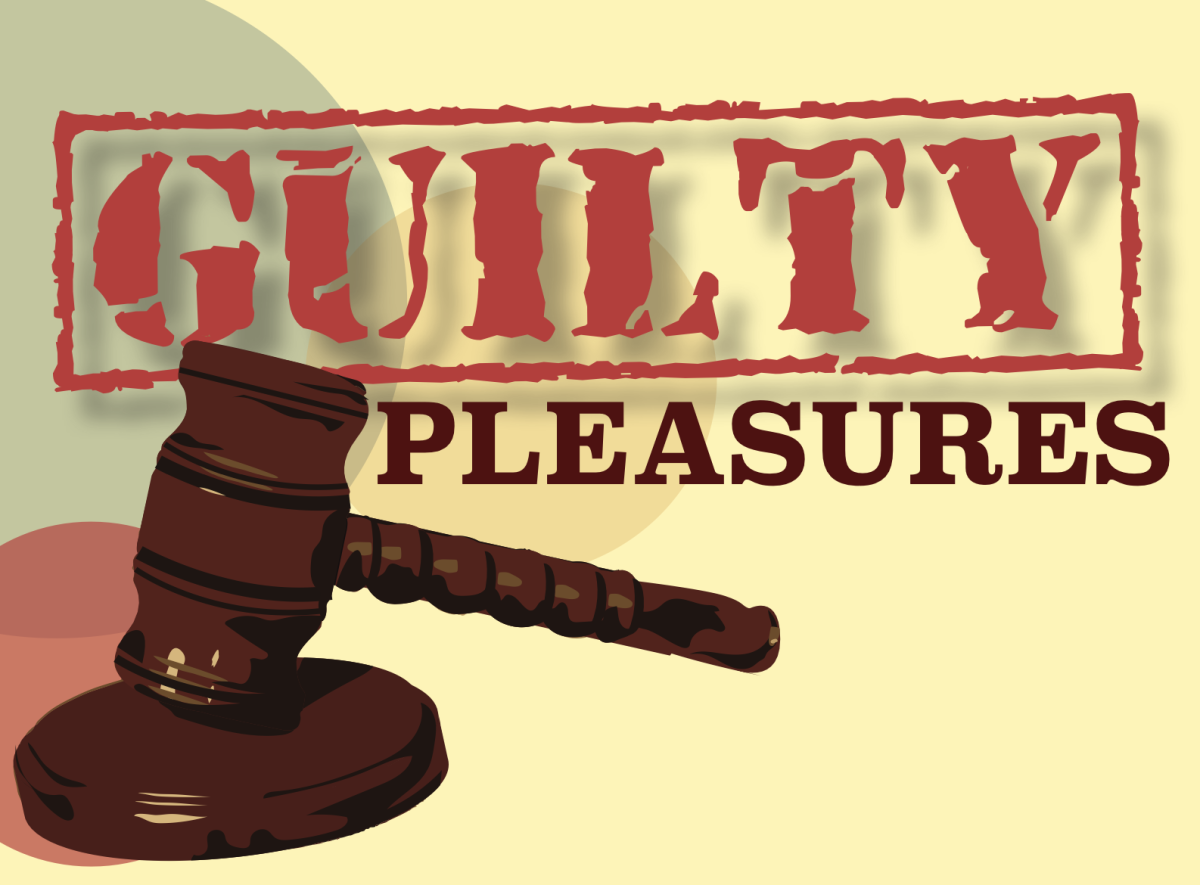A guilty pleasure can be defined as something that one enjoys even if it may be commonly looked down upon, such as eating sugary candy, scarfing down junk food, or enjoying an objectively bad song. Student-athletes at Paly face hours of training every week paired with long hours of studying, so how could this added element of their lifestyle alter this definition for them, and are guilty pleasures really unacceptable for athletes?
Some argue that the additional stress on athletes’ lives gives them an excuse to indulge in their favorite guilty pleasures from time to time when they aren’t playing their sport. A perfect example of this is the famous diet of Michael Phelps, a swimmer boasting 23 Olympic gold medals over his years. According to The Olympics’ official website, Phelps would famously eat around four times the daily recommended intake for a fully grown man, or around 10,000 calories a day during his time of intense training.
Most of the time a student-athlete isn’t putting down 10,000 calories as a guilty pleasure, but does this same principle carry over to the athletes of Paly, and what do they do when they aren’t under the pressure to perform?
One common guilty pleasure among Paly athletes is having caffeine in their routines before their sports. It is common to walk around campus and see people with energy drinks, or taking pre-workout before their practices or games.
Coaches and trainers tend to argue that caffeine before exercise should be avoided as it could cause a reliance on it to perform and jitteriness. Caffeine is looked down upon, especially for student-athletes, as teenagers are shown to be more sensitive to its effects.
However, it is also commonly thought that developing a strong routine can aid in getting in the right mindset, and ultimately performing at your peak. Because of this, many argue that even if what you do during your routine is looked down upon, if it helps you individually to perform, then it is not only acceptable but encouraged. 
“My guilty pleasure is that before races, I load up on Gu’s, which are these little energy gel packets with different flavors. I like having them before track meets because they give me a boost of energy through caffeine,” cross country and track runner Monty Webber (25’) said.
The textbook guilty pleasure for many is eating sugary foods, often generalized and looked down upon nowadays. Eating sugary foods is a commonality across Paly students and student-athletes alike. Sugar is something that almost everyone loves, but it is discouraged frequently, especially in an athletic diet because it could cause things like crashes in energy.
No doubt, this attitude is ingrained in people and isn’t going away anytime soon. However, for a busy athlete with an active lifestyle, adequately fueling your body is extremely important. Indulging in guilty food pleasures could come to an athlete’s aid at times, especially when they need a quick boost from sugar to get the energy they need.
“My guilty pleasure is eating my grandma’s delicious sugar cookies before running a few miles,” cross-country runner Ellie Roth (‘24) said.
Some athletes’ guilty pleasures have nothing to do with fueling themselves or getting prepared to perform, but rather just doing what they want in their time outside of practice to enjoy themselves. Even if it may not be relevant, sometimes just spending time with your teammates is important, especially if you can unite over the commonality of your guilty pleasure.
“I’d say my guilty pleasure would be using my teammate Brian’s conditioner after practices without him knowing,” senior water polo player Harrison Dike said. “Everyone always forgets to bring their own for after practice, and he has a super nice one that we love to use.”
A familiar guilty pleasure to many would be the quantity in which they indulge in the things they love. Even while one’s guilty pleasure may be trivial, it’s common to feel bad after binging on a large amount of it.
This feeling has its roots in a mentality that the things you love, only in moderation, are alright. Because of this, no matter what people choose to do, many have guilt in the back of their minds about the quantity in which they love.
“I’d say my guilty pleasure would be grapes. I bring them to practice and share with my team and we will go through a big bag of them within a practice,” senior Reine Schultz said.
When you think about a food that has been perpetuated as bad for you and demonized in recent fitness standards, many think of the American classic; a cheeseburger with fries. Since it is such an emblematic food of bad health with excess fat and sodium, many athletes find it hard to not feel guilty after eating them.
In reality, eating your guilty pleasures in moderation is all a part of a balanced life, especially for an athlete.
“After I play, I like to go to In-N-Out with my friends since it’s super close to the courts, and it’s super fun,” junior Oliver Rasmussen said. “Even though it’s probably not the most healthy, it’s super good and a nice thing to wind down with after a long session.”
Guilty pleasures can come at a cost, and the consequences of them can be adverse, especially for athletes. For example, one guilty pleasure such as caffeine gels could cause a reliance on them to perform, and overall physical health could be affected by such guilty pleasures.
For athletes looking to maximize performance, indulging too much in a guilty pleasure could cause a pitfall. In an age where medical studies about health, wellness, and fitness are increasingly abundant, we are bombarded with specific information to better ourselves and our performance.
These damage our attitudes towards our guilty pleasures by triggering a pursuit of perfection, making many feel guilty. However, indulging every once in a while in moderation doesn’t cause harm to others, and so many of these feelings of shame and guilt are not warranted.
Overall, a guilty pleasure can be broken down into an attitude of how we reference them, usually in an almost shameful manner. Simply avoiding your guilty pleasure is no way to go about your life, as enjoying things in moderation is generally alright; a balanced life is a healthy life.
While completely avoiding your guilty pleasures may be slightly beneficial for your health, it’s not beneficial for your happiness. For many people, especially athletes, shame is not a productive feeling to have regarding what you like to indulge in, so breaking the stigma around guilty pleasures could be a step in the right direction for athletes.
In conclusion, a guilty pleasure to an athlete can have consequences that should be taken note of, but avoiding them entirely is no solution as indulging, in moderation, is a part of a healthy and balanced lifestyle of an athlete.





